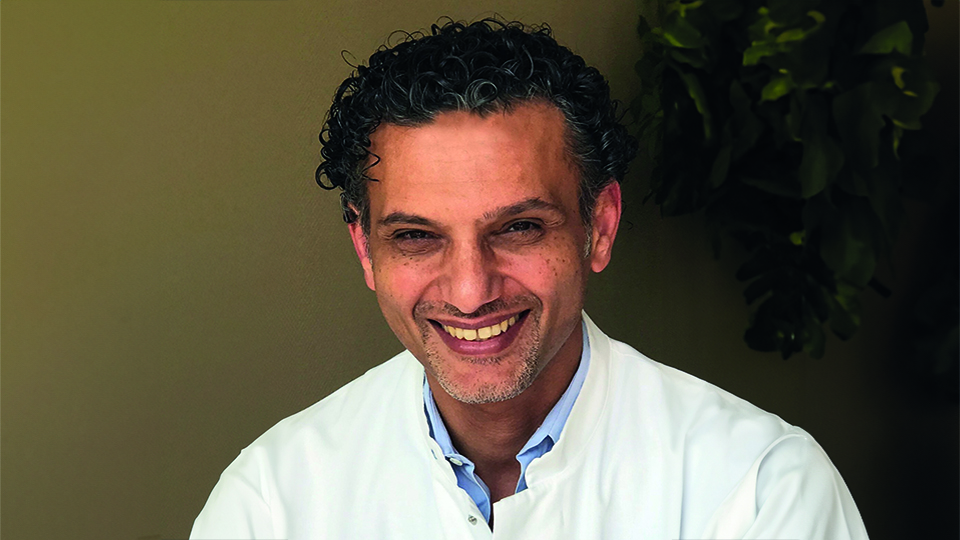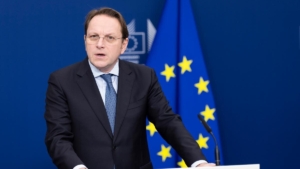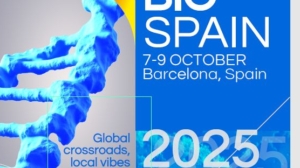
Cancer research on three pillars
Over the past few years, the Frankfurt Institute of Clinical Cancer Research (IKF) has successfully conducted over 90 clinical studies. Each year, it enrolls approximately 1,500 patients in these trials. European Biotechnology spoke with the founder and director Prof. Dr med. Salah-Eddin Al-Batran.
EuroBiotech_Germany is falling behind its European neighbors in terms of the total number of clinical trials conducted. What is different about the IKF?
Salah-Eddin Al-Batran_The IKF is a clinical cancer research institute deeply integrated within the academic community, with close collaborations with leading university hospitals in Europe and worldwide. Simultaneously, it functions as an autonomous entity within the free market economy, facilitating smoother partnerships with the industry. What distinguishes the IKF is its distinctive position bridging the academic and the pharmaceutical sectors. It strives to bring together these two worlds that think and act very differently, in order to create fruitful synergies and carry out innovative research projects that serve the goals of both sides. Symbolically, the IKF could be seen as an adapter that serves to connect these two worlds. The primary product of the IKF is the knowledge derived from these unique intersections.
EuroBiotech_Can you please explain the adapter function in more detail?
Al-Batran_The IKF is based on three pillars. The first one is the role of the sponsor according to the German Medicinal Products Act (Deutsches Arzneimittel Gesetz, AMG) or the European Clinical Trials Regulation (EU CTR). The IKF acts as a sponsor in around 50% of its clinical trials. This function is of crucial importance for our own studies. In addition, the IKF often takes on the role as sponsor in so-called collaborative studies with the pharmaceutical industry or in cooperations with smaller biotech companies that do not have sufficient capacity to meet the now very complex requirements placed on a sponsor. The second pillar is the role as a Full-Service CRO. As Full-Service CRO, the IKF not only carries out the procedural implementation of its own studies, but also acts as a contract research institute for studies commissioned by academic sponsors or science-driven biotech companies. Hereby, the IKF covers all necessary processes of study planning and execution according to FDA and EMA standards. The third pillar of the IKF is the highly specialised outpatient study clinic and Phase 1 unit, which were created through a cooperation with the Northwest Hospital of the University Cancer Center (UCT) Frankfurt. This unit functions independently of the sponsor and CRO function and serves the IKF as a highly qualified study center with strong recruitment capabilities. Partners who work with us benefit considerably from this 3-pillar model. They practically receive an efficient all-in-one solution that offers them advantages in many respects.
EuroBiotech_What is the approximate ratio of academic and pharma-sponsored clinical trials you conduct at the IKF?
Al-Batran_At the IKF, we conduct clinical trials in a ratio of approximately 70% academically initiated (investigator-initiated) to 30% sponsored by the pharmaceutical industry. However, it is important to note that we are also conducting a significant third group of studies that are part of our so-called Collaborative Academic Drug Development (cADD) program. These studies are a kind of cooperation between academic research and the pharmaceutical industry, which involves the development and approval of drugs for the industry. They are industrial-academic hybrids where industry representatives are integrated into the steering committee of the studies and at the same time, the IKF assumes the role of sponsor conducting the studies in its academic networks. Through this kind of study, we enable the industry to conduct parallel development of their compounds alongside their own study program, which can save significant resources and development costs. The IKF plans to further expand this flexible model, as we are convinced that it will optimise and accelerate the development of innovative cancer drugs. We are particularly motivated by the prospect that our contribution will enable our partners to obtain marketing authorisation for their drugs in indications that would otherwise not be the focus of pharmaceutical partners and that we can therefore help to meet so-called unmet needs.
EuroBiotech_Can a centre like the IKF “keep up” with the many innovative therapeutic approaches in oncology?
Al-Batran_Not only can the IKF keep pace with the many innovative therapeutic approaches in oncology, such as CAR-T, mRNA, gene and cell therapy and various combinations thereof, but these new therapeutic approaches are also a focus of our work. We are currently conducting numerous immunotherapeutic studies, including immune checkpoint inhibitors, mRNA and immune cell therapies. For example, the IKF is sponsoring the so-called INSIGHT Phase I platform study, in which a novel immunotherapeutic agent is being combined with various other therapeutic agents, such as chemotherapies and checkpoint inhibitors. Each tested combination forms a new arm of the study. Currently INSIGHT has five arms, i.e., five different innovative immunotherapy combinations are being investigated within one study. In addition, partially different types of tumors are treated in the arms. It is therefore a highly complex platform study that allows the rapid identification of promising therapeutic approaches, which can then be further evaluated in larger studies. We would of course like to expand the study further in the near future. In the field of ATMPs (Advanced Therapy Medicinal Products), the IKF is supporting a partner that develops immune cell-based therapies in the validation of its manufacturing process and the planned first-in-men testing of its cell preparations. Here, immune cells (so-called tumour-infiltrating lymphocytes) are isolated from tumour tissue taken from cancer patients as part of surgical procedures or biopsies, enriched in a special cultivation process and administered back to the patient via infusion. The aim is for these enriched, endogenous immune cells to migrate into the patient’s tumour and stop the growth of the tumour or, in the best case, shrink the tumour. In addition, the IKF has established a unique network called the PLATON Network, in which around 150 clinics are now involved. This network serves to identify patients with rare biomarkers and recruit them for clinical trials. This enables us to advance innovative therapeutic approaches and to further promote research in the field of oncology. Here, collaboration with other centers in this highly specialised field is always useful and a matter of course in order to share knowledge and resources and make progress together.
EuroBiotech_Can you give examples where your collaborative research approach came to fruition and led to improvements for patients?
Al-Batran_We are extremely proud to have significantly influenced the standard of care for esophageal and gastric cancer worldwide through our own trials, as documented, for example, by publications in the renowned medical journals Lancet in 2019 and Journal of Clinical Oncology in 2023. Currently, the IKF is conducting a total of 15 Phase III trials, underlining our ongoing commitment to advancing cancer treatment and promoting innovation in medical research.
EuroBiotech_What are your wishes for Germany as a place to study and for the IKF in particular?
Al-Batran_I have many wishes for Germany as a place to study, which would also be of great benefit to the IKF. First and foremost, I would like to see the approval processes for clinical trials simplified, ideally at European level. Both the state and private actors such as foundations should invest considerably more money in academic studies and provide more support for young biotech companies. The pharmaceutical industry should focus more on investigator-initiated studies. Currently, the industry tests its substances within only a very narrow context for resource reasons. As a result, the full potential of innovative drugs often remains untapped. This is exactly where the IKF is trying to make a difference. More support and collaboration between different players would accelerate research and development of new therapeutic approaches and significantly increase the chances of progress in cancer treatment.
This article was originally published in European Biotechnology Magazine Summer 2024.



 EC- press service
EC- press service AseBio
AseBio